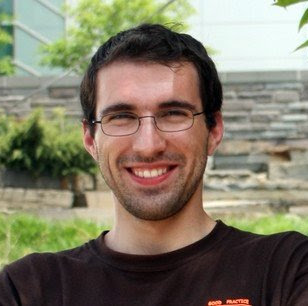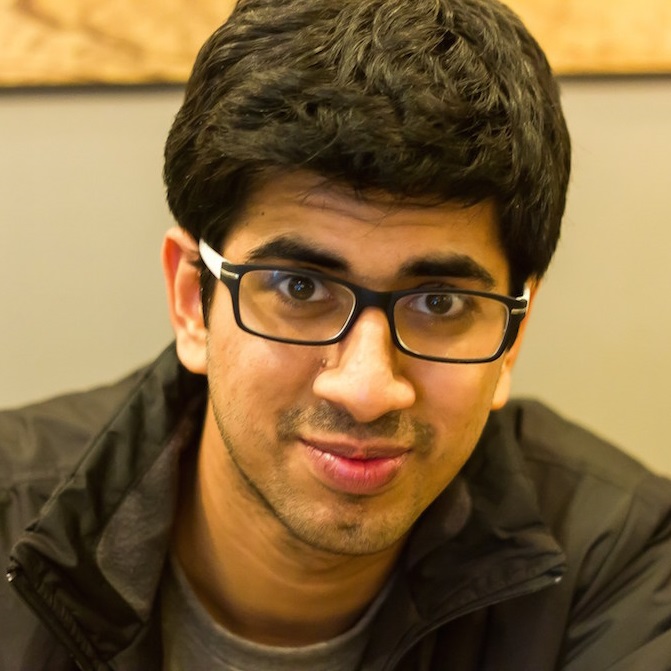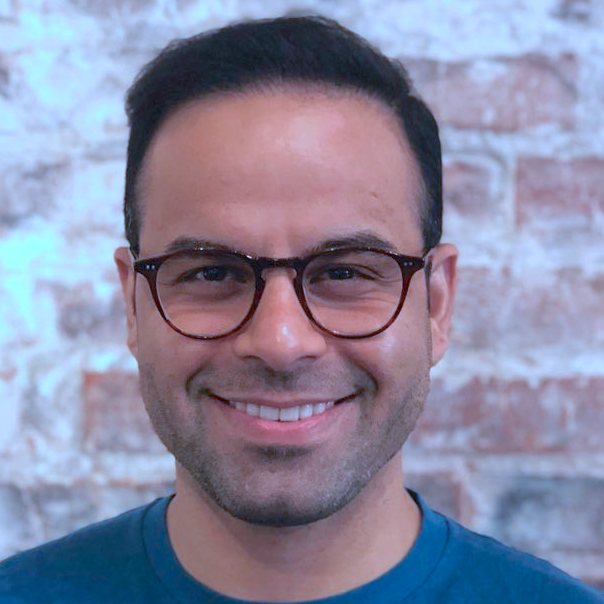
Marc Pollefeys is a full professor and head of the Institute for Visual Computing of the Dept. of Computer Science of ETH Zurich which he joined in 2007. He leads the Computer Vision and Geometry lab. Previously he was with the Dept. of Computer Science of the University of North Carolina at Chapel Hill where he started as an assistant professor in 2002 and became an associate professor in 2005. Before he was a postdoctoral researcher at the Katholieke Universiteit Leuven in Belgium, where he also received his M.S. and Ph.D. degrees in 1994 and 1999, respectively. His main area of research is computer vision. One of his main research goals is to develop flexible approaches to capture visual representations of real world objects, scenes and events. Dr. Pollefeys has received several prizes for his research, including a Marr prize, an NSF CAREER award, a Packard Fellowship and a ERC Starting Grant. He is the author or co-author of more than 280 peer-reviewed papers. He was a general chair for ICCV 2019, general chair for ECCV 2014 in Zurich, program chair for the IEEE Conf. on Computer Vision and Pattern Recognition 2009 and was co-chair of the Third Symposium on 3D Data Processing, Visualization and Transmission and has organized workshops and courses at major vision and graphics conferences and has served on the program committees of many conferences. He is a regular reviewer for most of the major vision, graphics and photogrammetry journals. Prof. Pollefeys is/was on the Editorial Board of the IEEE Transactions on Pattern Analysis and Machine Intelligence, the International Journal of Computer Vision, Foundations and Trends in Computer Graphics and Computer Vision and several other journals. He is an IEEE Fellow.

Niloy J. Mitra is a Professor of Geometry Processing in the Department of Computer Science, University College London (UCL). His current research focus includes shape analysis, data-driven geometry processing, and computational fabrication. He is especially interested in developing structure-aware representations and abstractions involving 3D geometric data to help reason from raw image, video, or scanned data. Niloy received the 2013 ACM Siggraph Significant New Researcher Award for "his outstanding work in discovery and use of structure and function in 3D objects" (UCL press release), the BCS Roger Needham award (BCS press release) in 2015, and the Eurographics Outstanding Technical Contributions Award in 2019. He received the ERC Starting Grant on SmartGeometry in 2013. His work has twice been featured as research highlights in the Communications of the ACM, twice been selected by ACM Siggraph/Siggraph Asia (both in 2017) for press release as research highlight.

Daniel G. Aliaga is an Associate Professor of Computer Science at Purdue University. His research is primarily in the area of 3D computer graphics but overlaps with computer vision and visualization while also having strong multi-disciplinary collaborations outside of computer science. His research activities are divided into three groups: a) his pioneering work in the multi-disciplinary area of inverse modeling and design; b) his first-of-its-kind work in codifying information into images and surfaces, and c) his compelling work in a visual computing framework including high-quality 3D acquisition methods. Dr. Aliaga’s inverse modeling and design is particularly focused at digital city planning applications that provide innovative “what-if” design tools enabling urban stake holders from cities worldwide to automatically integrate, process, analyze, and visualize the complex interdependencies between the urban form, function, and the natural environment.

Florent Lafarge is a researcher at Inria in the Titane research group. He does research in Computer Vision, Geometry Processing and Remote Sensing. He works on the analysis and geometric modeling of 3D environments from physical measurements, typically multi-view imagery and laser scanning. His favourite topics include surface reconstruction and approximation, city modeling, piecewise-planar geometry and spatial point processes.

Manolis Savva is an Assistant Professor in the School of Computing Science at Simon Fraser University. His research focuses on analysis, organization and generation of 3D content through a human-centric lens of "common sense" semantics. The methods that he works on are stepping stones towards holistic 3D scene understanding revolving around people, with applications in computer graphics, computer vision, and robotics.

Shubham Tulsiani is currently a Research Scientist at FAIR, Pittsburgh working with Abhinav Gupta. He previously graduated from UC, Berkeley where he was advised by Jitendra Malik, and also frequently collaborated with Alyosha Efros. He will be joining the CMU School of Computer Science as an Assistant Professor in Fall 2021. Dr. Tulsiani is interested in building perception systems that can infer the spatial and physical structure of the world they observe.

Amir R. Zamir is an Assistant Professor of Computer Science at the Swiss Federal Institute of Technology (EPFL). Prior to EPFL, he spent time at Stanford, UC Berkeley, and UCF. His research interests are in computer vision and machine learning with a focus on multi-task transfer/selfsupervised/unsupervised learning and perception-for-robotics. He has been recognized with CVPR (2018) Best Paper Award, CVPR (2016) Best Student Paper Award, CVPR (2020) Best Paper Award Nomination, and NVIDIA Pioneering Research Award (2018), among others. His research has been covered by various press outlets, such as The New York Times or Forbes.